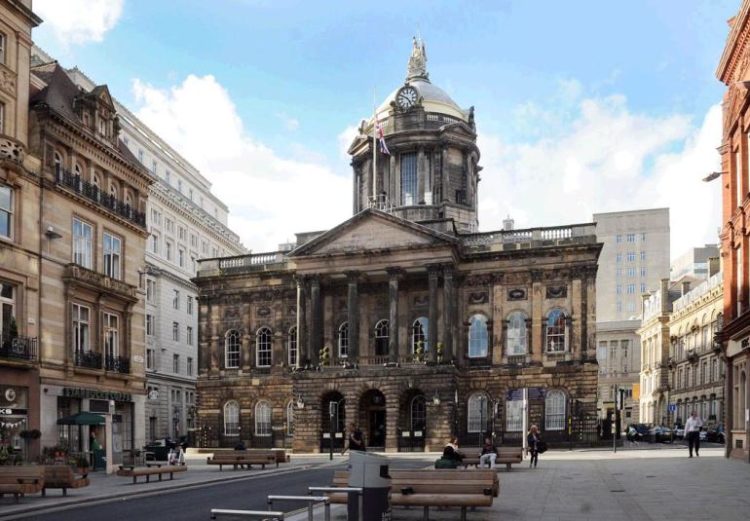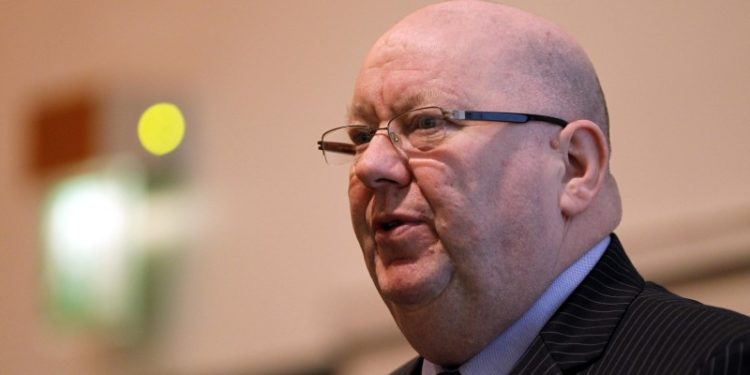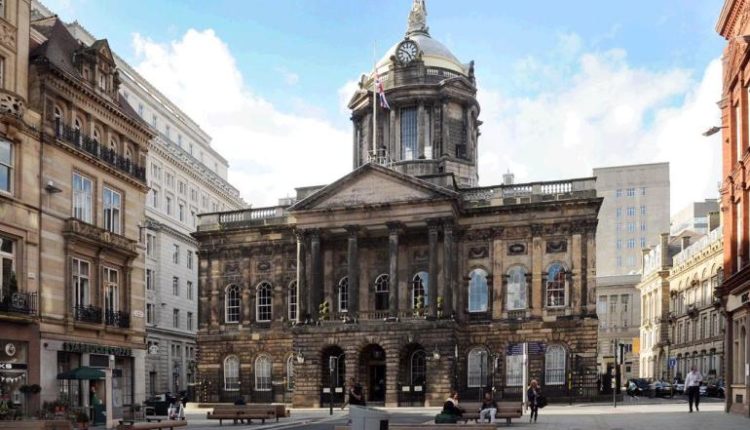Councillors voted in favour of the Budget at the Town Hall on Wednesday evening with cuts to frontline services totalling £30m. Tony McDonough reports

Liverpool Mayor Joe Anderson says he has made “tough decisions” to deliver a balanced budget for the city over the next 12 months.
Councillors voted in favour of the Budget at the Town Hall on Wednesday evening. It will see the people of Liverpool pay an extra 3.99% in Council Tax of cuts to frontline services of £30m. Government lobbying and the council’s invest-to-earn strategy has brought this figure down from an original £57.6m.
The city has suffered badly since 2010 due to the Government’s austerity drive. It now has £436m less to spend each year in real terms than it did in 2010 – equivalent to a 63% cut. This has had a devastating effect on essential services.
Mr Anderson said: ““This budget balances our books without impacting much-loved services such as children’s centres, libraries and leisure centres. We will also continue to significantly invest in services to help the most vulnerable in our city, such as preventing homelessness and our welfare support initiatives.”
One of the central planks of the invest-to-earn strategy has been an increase in the number of new homes, leading to higher Council Tax revenues. There will also be a £16m reduction in contributions to the Merseyside Pension Fund for 2020/2. The council has negotiated to pay in less as its investments have performed better than expected.
It has also secured additional Government funding of £10m for adult social care, which was only confirmed just before Christmas following the General Election. The proposals will see the books balanced through a mix of cutting the costs of services, reducing demand and increasing income.
Council Tax will rise by 3.99 per cent, which will raise an extra £7.2m compared to 2019/20. This is made up of 1.99% for general spending and 2% which is ringfenced for adult social care. Council Tax covers just 14% of the total council budget.

Almost 60% of households, who live in Band A properties, will pay an additional £43.90 a year for local authority services, which works out at 84p per week. This rises to £51.60, or 99p per week, when precepts for Merseyside Police, Mersey Fire and Rescue Service and the Combined Authority are added.
Key budget proposals include:
- Reducing the number of children in the most costly residential care placements by placing them in the council’s newly created children’s homes or in foster placements. Saving of £2m.
- Creating a dedicated ‘edge of care’ team to reduce the number of teenagers coming into services and improve outcomes. Saving of £1m.
- Supported Living transformation – ensure every individual is supported to live independently in appropriate accommodation with a personal budget. Saving of £2.5m.
- Review of NHS services commissioned through Public Health grant. Saving of £2.2.
- Redesign of customer services strategy and model. Saving of £2m.
- Review and remodel of ICT service. Saving of £900,000.
- A rise in council car parking charges. Income of £500,000.
- Reassess adult social care packages, with all those affected to have a benefits check and means test financial assessment. Income of £1m.
The budget also includes £11 million for an increase in fees for home care providers and residential/nursing homes so they pay staff the national living wage.
May Anderson added: “I am proud to say that no city in the country does more than Liverpool to protect those living in hardship, and I am committed to keep doing so, despite the cuts we face.
“Some of this is thanks to our success in building more houses and helping grow business rates. Without this, we would undoubtedly be cutting far deeper into frontline services. We have, however, had to make some tough decisions which include asking people to contribute more in council tax and fees and charges, as well as reviewing some services. I know this is a bitter pill to swallow at a time when some people are struggling, but if we did not do this we would simply be putting even more valued services at risk.”

